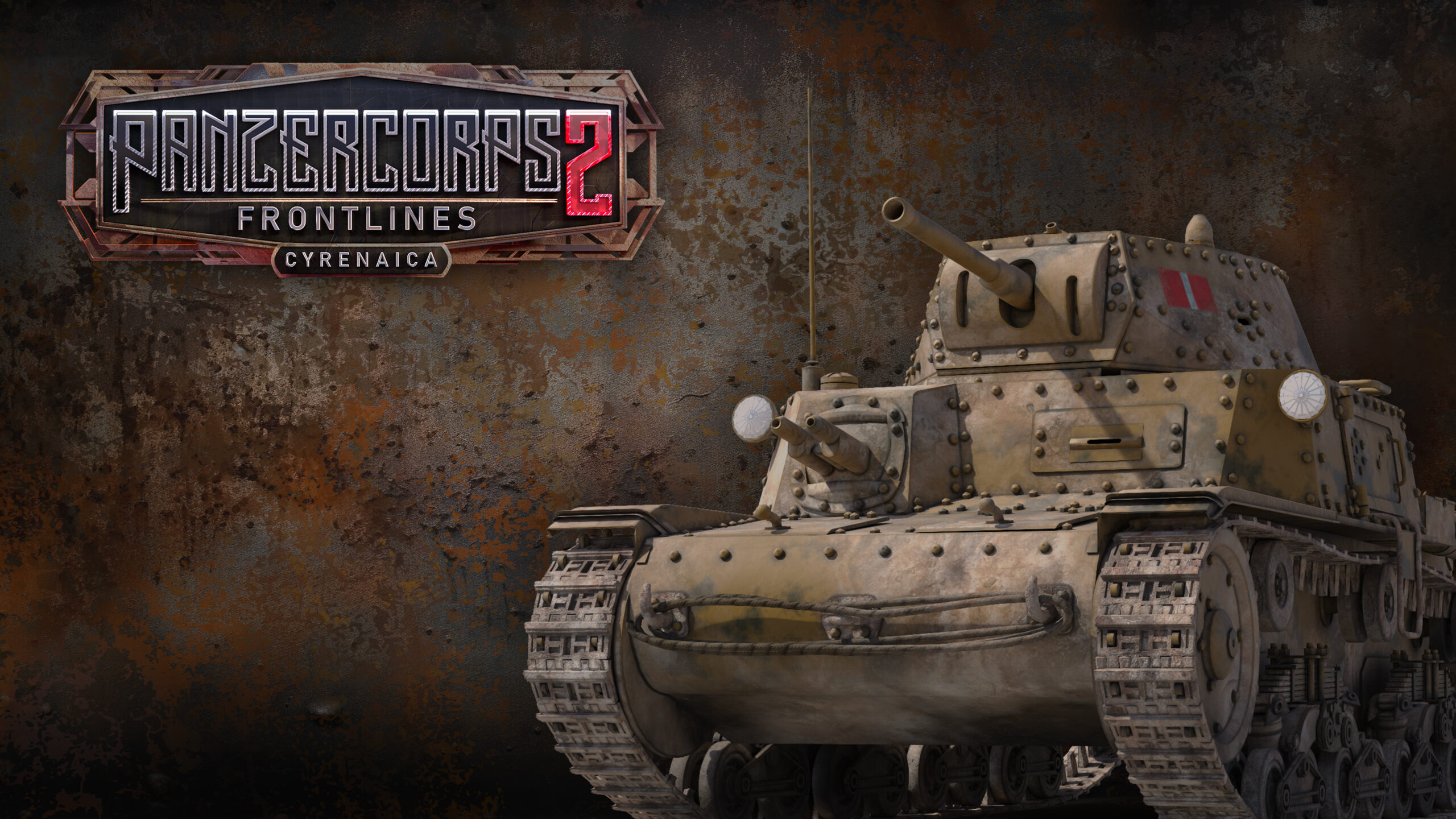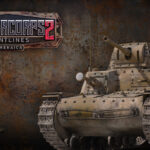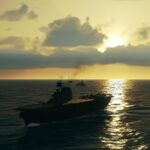Never had I had such intense but rewarding battles in any computer wargames in my recent memory. Second Front, a turn-based strategy game set during World War II, was developed by Hexdraw and published by MicroProse. The game combines old-school hex-based gameplay mechanics with modern graphics, appealing to both genre veterans and newcomers alike. It’s not crazy to draw a comparison between Second Front and the old but gold classic board game Advance Squad Leader,
Now, don’t be fooled by the lack of state-of-the-art graphics or the lack of grognardy user interface. Second Front boasts a cartoonish art style; although its interface may appear simple facilitates clear visibility and differentiation between units and terrains. This design choice caters to both seasoned gamers and novices, as it offers ease of use and accessibility while still maintaining the game’s strategic depth.

The game is set on the European Front and features a range of historical units and equipment of that theater. There are no naval or air units to play with; instead, the game is heavily focused on infantry and armored ground combat. Second Front’s gameplay centers around tactical fire and maneuver, requiring you to position your troops strategically and navigate through diverse terrains such as city blocks, thick forests, ravines, and rivers.
Classical mechanics like line-of-fire adds depth and complexity to gameplay, where you must carefully plan your moves and track the enemy’s position to gain a strategic advantage on the battlefield. Preventing unprepared enemy fire on your moving troops can mean victory and defeat when your army is not expandable. Instead, careful tactical fire and maneuver, suppressing the enemy and breaking their morale, is the bread and butter of Second Front’s gameplay.
The core gameplay can be divided into four phases, starting with the “Move and Fire” phase, where players give most of the movement and firing commands. The next phase is “Firing,” where the remaining units that can fire will do so. Then comes the “Escape” phase, where broken units will try to retreat to the closest hex to the edge. Lastly, there’s the “Recovery” phase, where the broken and suppressed units try to recover if a leader is nearby.
Your troops have the ability to move in six different orientations and use various movement types to approach the enemy in unique ways, from stealthy sneaking to charging headfirst like a bull. However, each approach carries its own set of risks and consequences when met with enemy fire. For instance, running while under attack can lead to high morale costs and increased chances of your troops breaking, compared to walking or crawling. This level of control and decision-making adds minute controls and coordination to the game, unlike other similar hex-based games with more straightforward controls, making Second Front a true standout in the wargame genre. The outcome of each action is determined by the choices you make, adding to the excitement and challenge of the game.
Boosting the firepower of your troops is essential in the game, and you can achieve this by providing them with support weapons and equipment. Such equipment can significantly improve your troops’ abilities. You can equip your troops with anti-tank guns or sniper rifles, and they can also share their weapons with others or exchange them for other support weapons.

In the tradition of similar squad-based board games, Second Front features hexes that can accommodate up to three infantry squads. The game emphasizes the importance of keeping your enemies close but your squad leader closer, with squads often requiring the presence of captains or lieutenants on or adjacent to their hex in order to recover morale when the inevitable occurs. As with other board games, successful fire and morale recovery are often left to the fate of the proverbial dice.
Second Front includes a campaign mode, which offers five different campaigns that take players through some of the most significant battles in world war two. These include well-known battles like Stalingrad and Borisov and lesser-known campaigns like Dinard. Each campaign begins with a simple introduction by the caricature of your superior to the overall objectives of the campaign. However, there is not much else said after the first message.
The campaigns may not be historically accurate with pinpoint unit location and composition, but they more than make up for it by giving the players an almost puzzle-like difficulty in each connecting scenario.

If you feel that the campaign is too daunting for you and may require baby steps to get your feet wet, then the game also offers single scenarios that can be played on a standalone basis. These scenarios cover a range of battles and allow players to test their skills in unique and challenging situations.
Second Front is generous enough to offer 24 scenarios from the German side, 12 against Russia, and the other 12 against Americans. While the Russians and American scenarios have 12 separate scenarios against the Germans, totaling a whopping 48 scenarios, not including the campaign. It’s a given that you are getting your bang for your buck.

For players who are new, Second Front also offers a range of tutorial scenarios to help them get to grips with the game mechanics. The game features 12 different infantry tutorial scenarios that focus on different aspects of infantry combat and eight dedicated scenarios for armored units. These tutorials are an excellent resource for players looking to learn more about the game’s mechanics and strategies, and they help ensure that players are fully equipped to take on the game’s challenging campaigns. It’s one of the few wargames that offers such an extensive set of tutorials.
Soon you’ll find out why the tutorials were a necessary addition. Notoriously, the game’s difficulty level is not for the faint of heart and requires significant time and effort to master. Many players have commented on the game’s steep learning curve and challenging gameplay. However, those who take the time to understand the basic infantry tactics of suppression and heavy firepower, as well as the importance of timing when it comes to assault and defensive positions, are more likely to emerge victorious and thoroughly enjoy the game. In short, this is a game that rewards strategic thinking and careful planning, and while it may not be for everyone, it is undoubtedly a treat for those who enjoy a good challenge.

In addition to its core gameplay mechanics, Second Front boasts a powerful editor allowing you to create your own maps and scenarios. The editor is user-friendly and offers a high degree of flexibility when it comes to map-making and scenario-building. You can create custom maps with a wide range of terrain features, including hills, forests, and rivers. The editor also allows you to place units and fortifications, set victory conditions, and add special events.
One of the benefits of the editor is that it allows you to create your own campaigns. The editor makes creating your own campaigns easy, complete with custom maps, events, and victory conditions. This allows you to explore alternative historical outcomes or create your own “what-if” scenarios.
Second Front also features a thriving modding community, with dozens of user-made scenarios available in the game’s workshop. You can browse the workshop and download scenarios directly from the game, allowing them to play custom content right away.

In conclusion, Second Front offers an engaging and challenging experience for both seasoned wargamers and newcomers to the genre. Its combination of classic hex-based gameplay mechanics and simple graphics with a cartoonish art style offers a fresh take on traditional computer wargames. The game’s emphasis on tactical fire and maneuver, infantry and armored ground combat, and diverse terrain adds depth and complexity to gameplay, rewarding strategic thinking and careful planning. Additionally, the game’s powerful editor allows you to create your own custom maps and campaigns, providing a high degree of flexibility and customization to your gaming experience.
While Second Front’s steep learning curve may be daunting for some players, if you invest time and effort to master it, the game’s mechanics will be richly rewarded with a satisfying and rewarding gaming experience. With its extensive set of tutorial scenarios and a campaign mode. Second Front offers a well-rounded and immersive gameplay experience.
Overall, Second Front is a well-crafted and polished wargame that is worthy of consideration by any wargamer or strategy game enthusiast. Its blend of classic and modern gameplay elements and its powerful editor makes it a standout title in the genre and a game that will provide hours of enjoyment for those willing to take up the challenge.








That’s a great write up!
Unfortunately this is a Steam only game, so you never really own it, too bad.